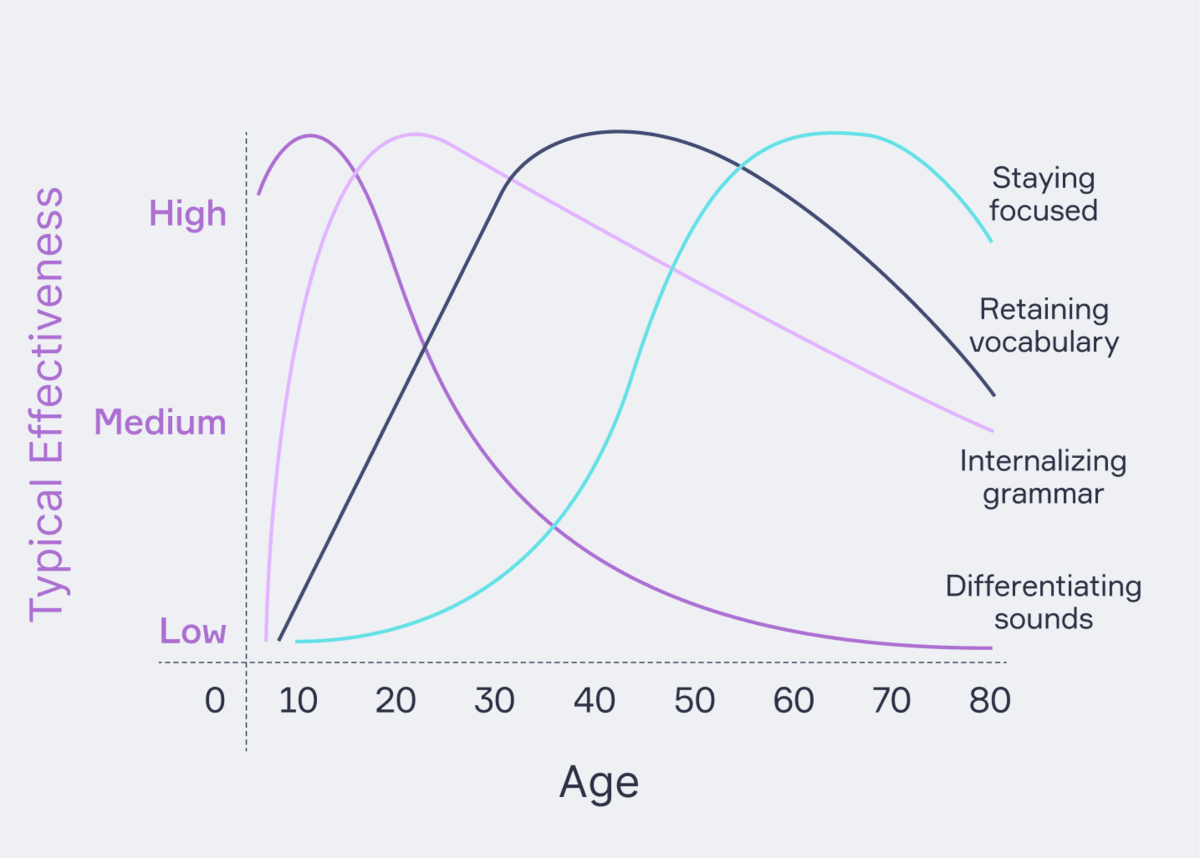5 Easiest New Languages to Learn for People Over 50

5 Easiest New Languages to Learn for People Over 50
Learning a new language can be a rewarding and enriching experience, regardless of age. For individuals over 50, it not only enhances cognitive abilities but also opens doors to new cultural experiences and social connections. Here are five languages that are particularly easy for English speakers to learn, along with practical tips and resources tailored to the needs and lifestyle of middle-aged learners.

1. Norwegian
Why It’s Easy:
-
Similar Vocabulary: Norwegian is a Germanic language, sharing many cognates with English, such as “vinter” (winter) and “sommer” (summer) .10.
-
Simple Grammar: Norwegian has straightforward grammar rules with only one form of each verb per tense, making it easy to learn .10.
-
Flexible Pronunciation: There are many accents in Norway, so there’s no single “correct” way to pronounce words, reducing pressure on learners .10.
Learning Tips:
-
Start with Basics: Focus on common phrases like “Kan du hjelpe meg?” (Can you help me?).
-
Use Online Resources: Websites like Duolingo and Babbel offer interactive lessons.

2. Spanish
Why It’s Easy:
-
Phonetic Language: Spanish words are generally pronounced as they are written, making it easier to learn .3.
-
Cognates: Many English words come from Latin, which is also the root of Spanish, providing a familiar vocabulary base .2.
-
Practical Use: Spanish is widely spoken in the U.S. and is useful for travel and career advancement .3.
Learning Tips:
-
Practice Verb Conjugations: Focus on mastering common verb tenses.
-
Watch Spanish Media: Engage with Spanish TV shows and movies to improve listening skills.

3. French
Why It’s Easy:
-
Shared Vocabulary: French and English share many words due to historical influences, making vocabulary acquisition easier .2.
-
Cultural Significance: Learning French opens up access to rich cultural heritage and literature.
-
Pronunciation Challenges: While pronunciation can be tricky, it’s manageable with practice.
Learning Tips:
-
Focus on Pronunciation: Listen to native speakers and practice regularly.
-
Use Language Apps: Apps like Mondly and Babbel offer pronunciation exercises.

4. Portuguese
Why It’s Easy:
-
Similarities to English: Portuguese shares many cognates with English, especially in formal and technical contexts .10.
-
Phonetic Spelling: Words are generally pronounced as they are spelled, similar to Spanish .10.
-
Cultural Exposure: Brazilian culture is increasingly popular worldwide, providing many opportunities to practice.
Learning Tips:
-
Watch Brazilian Media: Engage with Brazilian films and music to improve listening skills.
-
Practice with Native Speakers: Use apps like HelloTalk to chat with native speakers.

5. Swedish
Why It’s Easy:
-
Cognates: Swedish has many words similar to English, such as “gräs” (grass) .10.
-
Simple Grammar: Swedish grammar is relatively straightforward, with similar sentence structures to English .10.
-
Exposure: IKEA and other Swedish brands provide everyday exposure to the language.
Learning Tips:
-
Learn Common Phrases: Start with phrases like “Hej, hur mår du?” (Hello, how are you?).
-
Use Online Courses: Websites like Babbel offer structured lessons.

Overcoming Common Challenges
Middle-aged learners often face challenges such as time management, financial constraints, and self-doubt. Here are some strategies to overcome these obstacles:

Time Management
-
Set Realistic Goals: Aim to practice for short periods each day.
-
Use Mobile Apps: Apps like Duolingo and Mondly offer short, daily lessons.

Financial Constraints
-
Free Resources: Utilize free language learning apps and websites.
-
Community Classes: Look for low-cost or free classes at local libraries or community centers.

Self-Doubt
-
Join a Community: Connect with other learners through online forums or local language groups.
-
Celebrate Small Wins: Focus on achieving small milestones, like ordering food in the target language.

Conclusion
Learning a new language is a fulfilling experience that can enrich your life in many ways. By choosing languages that are easy for English speakers to learn and leveraging practical learning strategies, individuals over 50 can successfully embark on this journey. Whether it’s for personal enjoyment, travel, or career enhancement, the benefits of language learning are undeniable.

Additional Resources
-
Language Learning Apps:
-
Duolingo: A gamified app with a wide range of languages.
-
Babbel: Offers structured lessons with real-life conversation practice.
-
Mondly: Innovative features like AR and VR for a unique learning experience.
-
-
Online Courses:
-
Coursera: Offers university-level courses on language and culture.
-
edX: Provides a variety of language courses from top institutions.
-
-
Community Learning:
-
Local Libraries: Often host free or low-cost language classes.
-
Senior Centers: Many offer language classes tailored for seniors.
-

Final Thoughts
Embracing language learning as an adult can be transformative. It not only enhances cognitive abilities but also opens doors to new friendships and cultural experiences. By focusing on languages that are easy to learn and using practical strategies, individuals over 50 can successfully navigate this journey and enjoy the many rewards that come with it.








